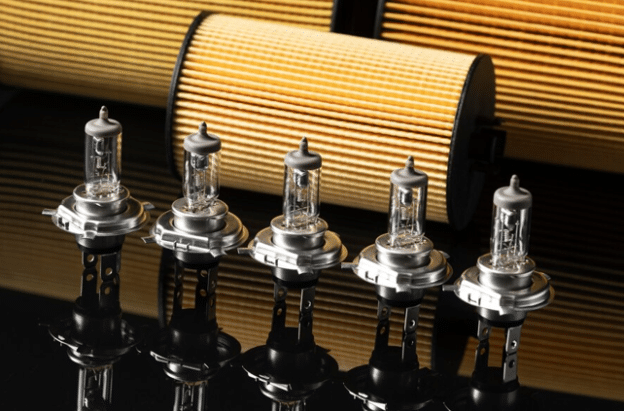Are you starting your custom vehicle build for your fleet and trying to figure out what fuel system parts are critical for maximum performance?
The fuel system is a vital component of the overall performance of the engine, as it is responsible for providing the required fuel in the most effective manner. Starting from the fuel tank to the injectors, every element has vital importance in maintaining the accurate fuel delivery that is necessary for the custom build.
Below are details of six fuel system parts that you need, as well as information about the role of each of these parts. By making sure that you get the right components, it will not only make your car perform better but also increase its durability.
1. Fuel Tanks
Your vehicle’s fuel is stored mostly in the fuel tank. A high-quality fuel tank is critical for preserving fuel integrity and guaranteeing a consistent fuel flow to the engine. Consider the size, shape, and material of the fuel tank.
Tanks Inc, for example, manufactures a great fuel tank. It provides a modern solution with an in-tank pump system, assuring clean and efficient fuel delivery for high-performance engines.
2. Fuel Pumps
An efficient fuel pump is very crucial in making sure that fuel gets to the engine from the tank. Some engines can use a mechanical pump, whereas others could require an electric pump based on your engine’s requirements.
Electric fuel pumps are utilized in most custom builds because they supply a consistent pressure and they work extremely well. While choosing a fuel pump, make sure that the unit offers steady fuel flow and pressure which makes it ideal for performance intends vehicles.
Also, ensure that the selected pump works well with your fuel system and provides the right pressure for your engine.
3. Fuel Filters
Fuel filters play a crucial role in maintaining the quality of fuel, preventing debris from entering the fuel system and damaging the engine. It also guarantees that no particles will be able to penetrate through and clog up your injectors or carburetor.
While choosing the fuel filter, most important factors that should be considered are its high filtration capacity and easy installation. Make sure that it makes provision for a range of customizable applications to ensure that your engine gets a constant supply of clean fuel.
4. Fuel Pressure Regulators
Fuel pressure regulators are used in controlling the pressure of fuel supplied to the engine so as to stay within the recommended level. This is important for the efficiency and productivity of the engines because if the pressure is too high or too low, it can cause some trouble.
Select a well adjustable fuel pressure regulator that enables you to get an ideal fuel pressure for your engine. Choosing the appropriate regulator for different custom configurations means that the engine will always operate smoothly, no matter the circumstances.
5. Fuel Lines and Fittings
Fuel lines and fittings are the veins of the fuel system: they deliver the fuel to the engine from the tank. It is therefore important to use high-quality lines and fittings to avoid leakage and to be able to withstand the pressures and temperatures of the custom build.
It is recommended to use high-performance hoses and fittings for a more robust and reliable connection that will not leak. This will ensure the durability of your fuel system, fuel delivery and subsequently the performance.
6. Fuel Sending Units
Fuel-sending units are used to determine the quantity of fuel in a tank and send this information to the fuel gauge. It is important to consistently ensure that the fuel level is correct so as to be able to detect the usage of fuel and the time to refill the fuel tanks.
Select one that supports a wide range of tank depths in order to be compatible with your custom build. This will give a clear reading which will help you monitor your fuel status and ensure that you do not run out of fuel.
Factors to Keep in Mind for Selecting the Right Parts for Your Vehicle
When constructing a custom vehicle, selecting the most appropriate fuel system components determines its performance and safety. Here are some key factors to consider:
Compatibility
Check that each part meets your vehicle specifications and other parts in the fuel system. Misaligned components can result in poor fuel supply and system or equipment failure.
Performance Requirements
Choose the parts according to your engine’s performance requirement. High-performance automotive engines are needed to handle increased fuel flow and pressure.
Material Quality
Choose components that are made of strong and long lasting materials which will suit the custom build project. This guarantees durability and minimizes the chances of a failure.
Reliability
Select the parts from the renowned manufacturers that are known for their durability and efficiency. This can help avoid unexpected failures and guarantee optimal performance all the time.
Cost
While it might be tempting to cut costs, investing in high-quality components will pay off in the long run by providing better performance and reducing maintenance needs.
Conclusion
Building a custom vehicle involves a multitude of decisions, but ensuring a robust and efficient fuel system is paramount. Each component of the fuel system plays a vital role in delivering fuel efficiently and safely to the engine.
By carefully selecting high-quality parts such as fuel tanks, pumps, filters, pressure regulators, lines, sending units, and injectors, you can create a fuel system that meets the demands of your custom build.
Remember to consider compatibility and performance requirements when selecting these parts to achieve optimal results.


